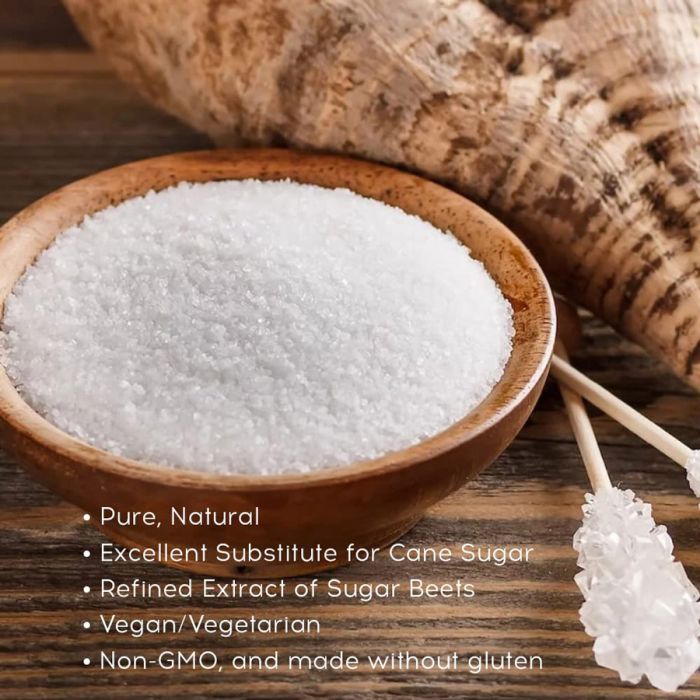Exploring the Distinctions being used and Benefits In Between Beet Sugar Vs Cane Sugar
In the cooking world, the option in between beet sugar and cane sugar is not merely regarding sweet taste but involves a nuanced factor to consider of flavor, application, and effect. While both sugars stem from various plants, each undergoes distinct manufacturing procedures that subtly affect their features and suitability for various meals.
Beginnings and Production Procedures of Beet and Cane Sugar

Walking cane sugar, on the various other hand, comes from the sugarcane plant, an exotic lawn belonging to Southeast Asia today cultivated in exotic zones worldwide. The production of cane sugar begins with the harvesting of cane stalks, which are crushed to launch the juice. This juice is then boiled to focus it, after which it is spun in centrifuges to create raw sugar crystals. These crystals are further refined to generate the white sugar frequently readily available in shops.

Nutritional Material and Health Considerations

When comparing the dietary content of beet sugar and cane sugar, it comes to be noticeable that both kinds essentially supply the very same caloric values, with about 16 calories per tsp and no significant nutrient variety. Both sugars, when eaten in excess, can contribute to elevated blood sugar levels, a danger aspect for diabetes and other metabolic disorders. From about his a health perspective, moderating intake of any type of kind of sugar, whether from beet or cane, is suggested to prevent these prospective unfavorable results on wellness.
Taste Profiles and Culinary Applications
Despite their comparable chemical structures, beet sugar and cane sugar differ discreetly in flavor, which can influence their usage in numerous culinary contexts. Cane sugar frequently carries a hint of molasses, even in its polished kind, providing a cozy, caramel-like touch that boosts baked items, resource coffee, and chocolate-based recipes. On the various other hand, beet sugar is defined by its highly refined, neutral preference, making it a versatile sweetener that does not alter the flavor profiles of recipes.
Environmental Effect and Sustainability
While both beet and cane sugars are obtained from plants, their environmental impacts differ significantly due to the distinct approaches of growing and handling required for each. Sugar beet growing often involves considerable mechanization, which can boost fossil gas usage and carbon discharges.
Additionally, the handling of sugarcane often produces a considerable quantity of waste, including bagasse, which, although functional as biofuel, regularly adds to air contamination if melted inefficiently. Sugar beet handling makes use of even more of the raw products, causing less waste. Both sectors encounter challenges in minimizing their environmental impacts, yet recurring technologies in farming methods and waste monitoring are aiming to boost sustainability.
Economic Variables Influencing the Sugar Industry
The financial dynamics of the sugar sector are dramatically influenced by worldwide market needs and profession plans. Factors such as tariffs, aids, and global profession agreements play important duties in forming the competitive landscape. In regions where sugarcane or sugar beet manufacturing is subsidized, manufacturers might have an economic advantage that enables them to provide lower rates on the international market. This Going Here can develop disparities in profitability and market access for manufacturers in countries without such aids.
In addition, variations in worldwide demand for sugar, influenced by nutritional fads and commercial use in food, directly impact rates and manufacturing levels. beet sugar vs cane sugar. Climate condition also play a pivotal role, as they can significantly influence plant yields and, consequently, the supply chain. This irregularity presents a level of economic unpredictability that can cause investment volatility in sugar production fields, affecting choices from planting to market strategy
Verdict
In final thought, both beet and cane sugar have unique high qualities that suit different culinary needs. While cane sugar imparts an abundant flavor perfect for boosting baked goods, beet sugar's nonpartisanship is perfect for lighter recipes.